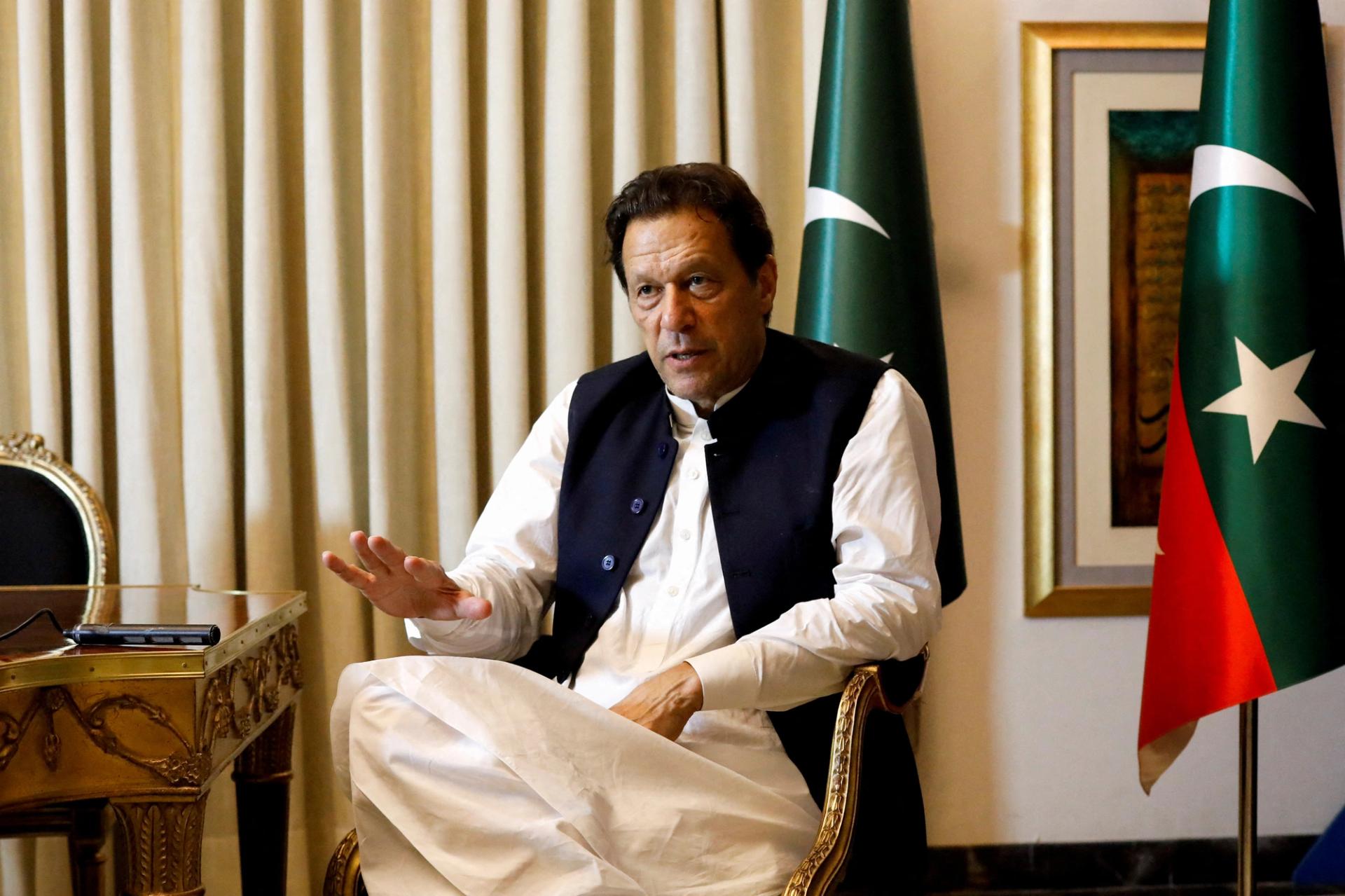The News
Former Pakistani Prime Minister Imran Khan was given a 10-year prison sentence for leaking state secrets, days ahead of Pakistan’s general election, in a case his political party described as a “sham.”
The closed-door sentencing is the harshest legal action taken so far against Khan, who faces a string of cases and is already serving a three-year jail term after he was convicted of corruption last year, ruling him out of next week’s polls.
In this latest case he was found guilty of disclosing the contents of a diplomatic message, which he claimed showed that his removal from office in a no-confidence vote in 2022 was a conspiracy between the U.S. and the Pakistani military.
“This was not a trial, it was a fraud,” one of Khan’s lawyers, who will be appealing against the ruling, said on Tuesday.
SIGNALS
Elections delayed until Khan barred from running
Khan, a former cricketer, is massively popular among the Pakistani public, who regularly turn out in huge rallies in his support, protests which can occasionally become violent. Pakistan’s general elections were first called last year, then delayed due to an issue with the country’s census. Analysts believe they were postponed so that legal convictions would prevent Khan from running — and likely winning if he did so, Indian outlet The Hindu reported. Delaying the election helped ensure Khan would be behind bars, making it “easier for the military establishment to get the ‘desired results’ … and install a set up of its choice in Islamabad,” the paper noted.
Military’s outsized influence on Pakistani politics likely started legal woes
Military leaders in Pakistan often call the shots in the country, and have a tendency to turn on politicians who fall out of favor, columnist Ishaan Tharoor wrote in The Washington Post. Khan’s 2022 ouster from power was likely backed by military officials, and people in the media sympathetic to Khan have been silenced, Tharoor pointed out. “Khan’s distinct brand of politics — and popularity — may make him a unique threat to the top brass,” he added.
Pakistan’s democratic institutions are backsliding
Successive Pakistani governments have dismantled many of the country’s democratic institutions, columnist Lynne O’Donnell noted in Foreign Policy. Electoral redistricting, for instance, delayed Pakistan’s elections until Feb. 8, with critics accusing the government of gerrymandering. “There’s a very clear pattern of the dismantling of the correctives of democracy,” one researcher told her, adding that while it was hard to say if the current situation was “unprecedented,” it “has certainly escalated and intensified in recent months and years.”

